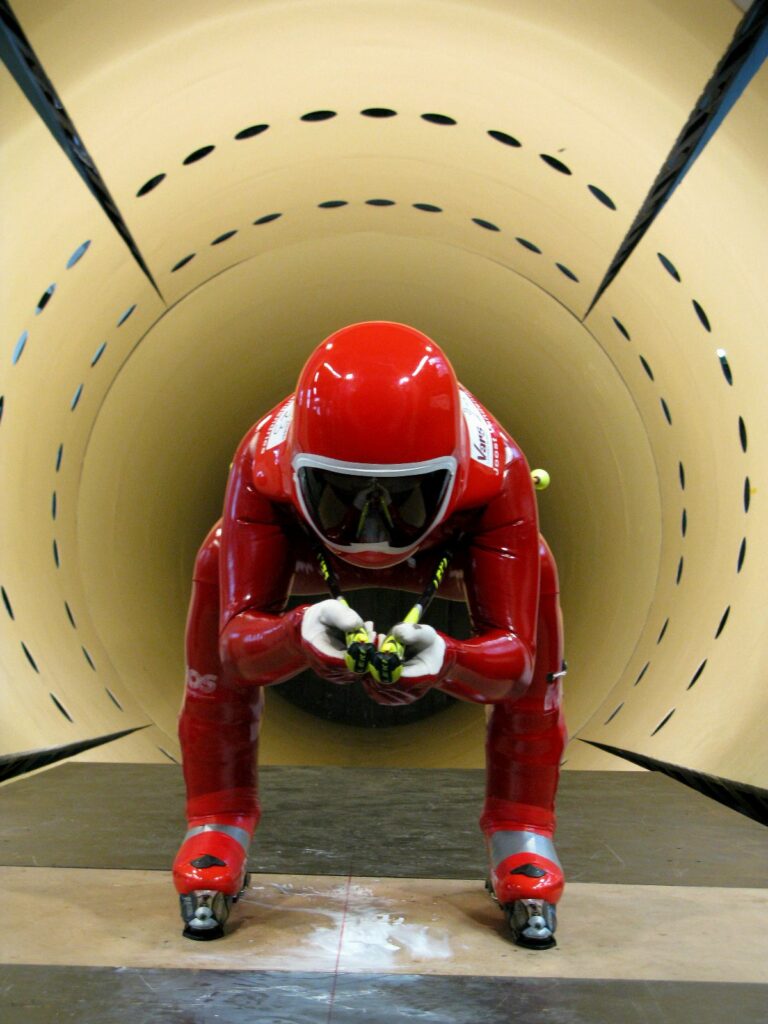On 26 November, The Institute organised an open day at its Rhode-Saint-Genèse site on the surroundings of Brussels, giving Gate.31 to discover a site that is normally off-limits to the public, and which houses cutting-edge scientific facilities, some of which are unique in the world: the Longshot, a gust wind tunnel capable of simulating hypersonic flow conditions of up to 14 times the speed of sound, and the Plasmatron, which reproduces the extreme thermal conditions encountered when a spacecraft re-enters the atmosphere.

A day of discovery and learning about science… attracting a large audience
« The event was a real success! We welcomed 700 visitors, including 250 children aged 5 to 12, teenagers and young people who want to study engineering, » says Christelle Debeer, head of communications and marketing at the VKI. « This day will enable us to raise our profile with the general public, but above all it will enable us to awaken the youngest visitors to science because, let’s not forget, the VKI’s vocation is to carry out research, but also to disseminate information and educate! »

Contributing to renewable energies by optimising the operation of wind farms
Among the demonstrations on offer that day, our focus was on optimising wind farms in the North Sea.
« Today, around 12% of Belgium’s electricity comes from wind power, including 5% from onshore wind turbines and 7% from offshore wind turbines in the North Sea. Offshore wind turbines are placed in wind farms. Within these wind farms, neighbouring turbines interact with each other: they extract energy from the incoming wind and leave behind them a wake of lower wind speeds and greater turbulence. As a result, wind turbines located downstream of a wind farm produce significantly less electricity than their upstream neighbours. By modifying the parameters of the wind turbines, we can reduce wake effects and optimise the production of the wind farm » explains Philippe Planquart, responsible for research projects at the VKI.

Thanks to the largest low-speed wind tunnel in Belgium, the Institute is able to study the effects of wind in urban environments, on suspension bridges and on architectural structures, and also, in this case, to focus on optimising the production of wind energy.
Wind energy is currently an area of strategic interest for the Institute. « The research we are carrying out in the wind turbine sector focuses on weather forecasting; we are developing a model to predict the electrical power produced by the wind farm. We are also conducting research into the experimentation and numerical simulation of aerodynamic interactions between wind turbines and the atmosphere, the optimisation of the control and operation of wind farms and on-site measurement campaigns in the North Sea.
The VKI looks to the future to support the transition to energy and transport
« What we’re doing now and what we’ll be doing in the future is obviously research into energy and decarbonisation, whether it’s research into hydrogen[1] , wind turbines or new nuclear reactors.

In the specific field of aeronautics, one of VKI’s historical sectors, the teams are mobilised around the WINGS project[2] . “Faced with environmental challenges and ambitious decarbonisation plans aimed at achieving carbon neutrality by 2050, our researchers are working in partnership with Safran Aero Boosters for propulsion (new compressor technologies, heat exchangers, instrumentation for test benches) and Sonaca for aerostructure (reducing the noise impact of leading edges and new-generation de-icing systems). “
Education through research
As the Institute’s teams at explain, there are many challenges facing us today… « We’re looking for talented people to help us meet the many technological challenges of the future. In terms of approach, VKI favours a combination of industrial research and education for its engineers. It’s clearly a win-win approach, and we’re always open to partnerships with industry (theses, doctorates, etc.), » says Christelle Debeer.
Finally, VKI is also looking for other types of profiles: HR managers, business development managers, project and research engineers, laboratory technicians. The positions open concern the 3 VKI sites in Belgium, namely Sint-Genesius-Rode (Brussels), Liège and Ostende ☞ http://jobs.vki.ac.be/
[1] VKI is the leader of two « VKHyLab » hydrogen research centres in Belgium. Each of these centres, located in Antwerp and Charleroi, will have a specific area of expertise.
[2] WINGS (Walloon Innovations for Green Skies) is a technological innovation partnership project funded by the Walloon Region.

